Republican senators advocate Tehran 'regime change', economic pain

Two Republican senators told Iran International on Thursday that Washington must deploy economic pressure to cripple it Mideast adversary the Islamic Republic of Iran.
Iran International congressional reporter

Two Republican senators told Iran International on Thursday that Washington must deploy economic pressure to cripple it Mideast adversary the Islamic Republic of Iran.
"Everything we can do to prevent Iran from acquiring a nuclear weapon and ultimately to support regime change in Iran would be an improvement in US national security", Texas Senator Ted Cruz said.
"I think we have many points of leverage short of military action and economic and diplomatic pressure can have a profoundly powerful effect," he added. "The Ayatollah's intentions are unquestionably hostile. He is a theocratic genocidal lunatic."
Trump has threatened to bomb Iran if it does not reach a new nuclear accord. Iran's Supreme Leader Ayatollah Ali Khamenei has vowed retaliation in the event of an attack.
Previously, the populist US President who campaigned in part on avoiding foreign wars has said he wishes the Iranian people well and suggested he does not seek the overthrow of its theocratic rulers.
Trump in February reinstated the "maximum pressure" campaign of sanctions on Iran from his first term with the aim of bringing Iranian oil sales down to zero.
Tehran denies seeking nuclear weapons but the United Nations nuclear watchdog said it now possesses the largest stockpile of enriched uranium of any non-nuclear armed state.
Republican Senator Tommy Tuberville of Alabama expressed support for increased pressure on Iran, emphasizing sanctions targeting key sectors like oil and gas.
“If you're going to put sanctions on somebody – what President Trump does—for Iran and for the regime that's even killing its own people—is, you do blockade," Tuberville told Iran International.
"You take away their source of being able to make a living, and that’s through their oil and gas."
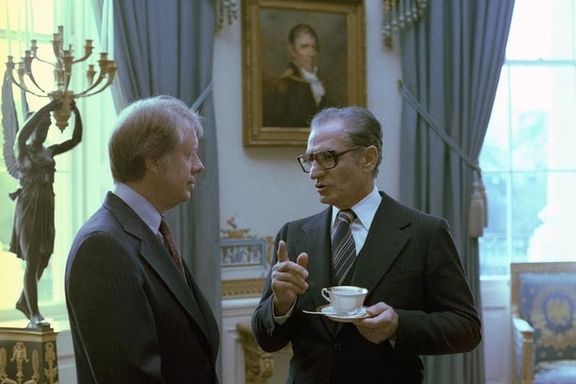
Nearly fifty years later, Iran International can reveal the untold story of a critical US mission to Tehran ordered by President Jimmy Carter to determine whether Mohammad Reza Pahlavi Shah could fend off a revolution.
Their conclusion, after facing militants' bullets and a ghostly encounter with the shell-shocked monarch, was that the US could no longer support its longtime ally's rule.
The consequences of Islamic Revolution to follow reverberate to the present day.
Ambassador John Craig, 80, was a young American diplomat when he was tasked with joining an exclusive group to meet the Shah alongside Senate majority leader Senator Robert Byrd.
It was a mission that went undisclosed even to American Ambassador to Iran William Sullivan, Craig told Iran International in an interview in Elizabethtown, Pennsylvania, where he teaches at the local university.
In a storied career, Craig went on to serve as US ambassador to Egypt and Oman.
“President Carter asked Senator Byrd to make a special trip to Tehran to give him a personal assessment of the longevity of the Shah. There was great concern in Washington”, said Craig, “Could the Shah hold on? Could the Shah defeat the revolution?”
Their task was to help Carter transcend the disagreements within the US foreign policy over whether one of Washington's key allies in the turbulent region could be salvaged and provide an unvarnished take on the Shah's mettle.
“Some were saying, yes, the Shah could hold on, others no. One of the issues in that debate was how much force should be used to put down the revolution,” said Craig.
"There were those who felt that the Shah should really be aggressive and shoot people. And there were those who felt that reforms were the way to defeat the revolution.”
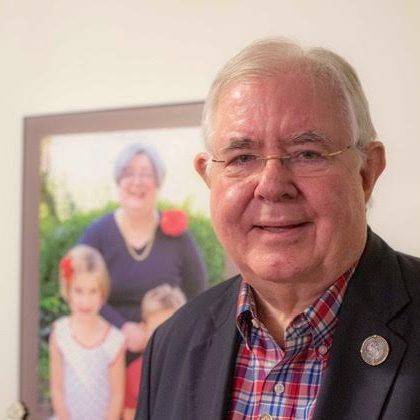
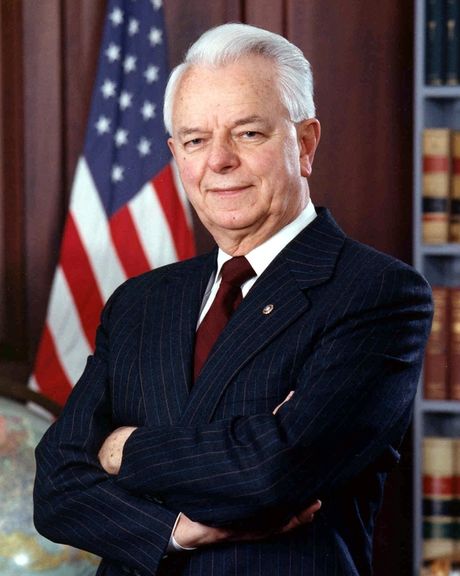
Mission: Tehran
To camouflage the trip's true purpose, Craig and the rest of the group made a diplomatic tour across the Middle East and the North Africa before arriving in Tehran.
Craig touched down in December 1978, just a few months before the Shah was ultimately toppled and as rebellion roiled cities nationwide.
Violence was escalating and martial law was in place as armed anti-Shah demonstrators roamed the streets chanting ‘death to the Shah!’
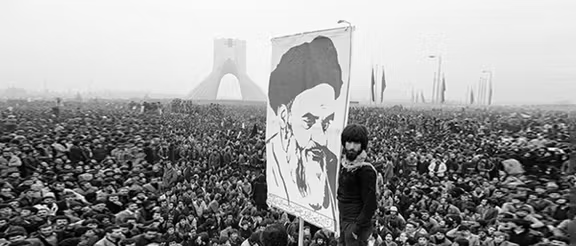
Because of the security risk, Craig and the team were not able to drive to the Shah’s Niavaran palace and instead flew by helicopter.
“We were flying. You could see out the windows that people were shooting at us,” Craig said.
When they arrived, Craig said he was astonished to see bare walls - no paintings, no antiques - in what was once among the world's most opulent palaces.
It became clear that the Shah was preparing to flee.

“I'm saying to myself, this is really weird. I said to myself immediately, these guys have packed up. They are ready to go. No question about that,” Craig said.
Entering the palace’s Hall of Mirrors, Craig caught sight of the Shah and his wife, Empress Farah Diba, standing to greet them.
'Inert' emperor
“He was comatose. Standing, but inert,” said Craig.
“I noticed that the Shah was looking straight ahead. He was not interacting. His eyes weren't moving. He did not raise his hand. But when the person put their hand in his hand, he didn't grasp it and he didn't shake it,” Craig said.
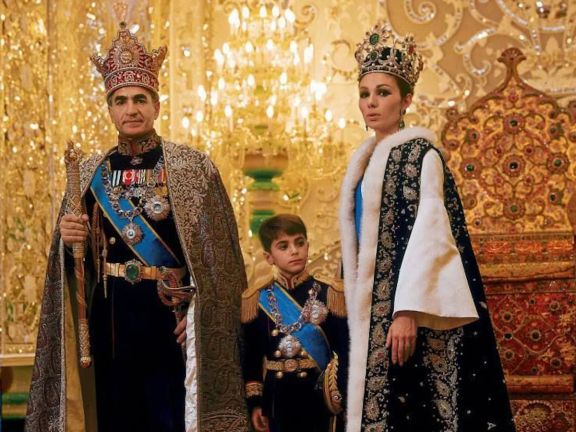
They went on to have lunch in the palace. Craig said the Shah did not speak once over the course of the meal, leaving the Empress to do all the talking. She appeared to be in control and running the country in the last days of their rule, Craig concluded.
“He didn't eat. He didn't move. He didn't say a word,” said Craig about the Shah.
Pleasantries and small talk dominated the discussion and the violence in the streets went unmentioned. Senator Byrd and Ambassador Craig left convinced that the Shah was unfit to rule.
Little did anyone at the time realize it, but the lunch was to help determine US policy and Iran's future course for the coming decades.
Screaming match
What followed next was a visit by Senator Byrd and Ambassador Craig to Ambassador Sullivan’s house in Tehran to break the news on the special visit.
While Ambassador Craig did not partake in the conversation, he could hear what Sullivan and Byrd were saying.
“There was a lot of screaming and yelling. They were arguing about what our policy should be going forward,” said Craig on the encounter between the two men.
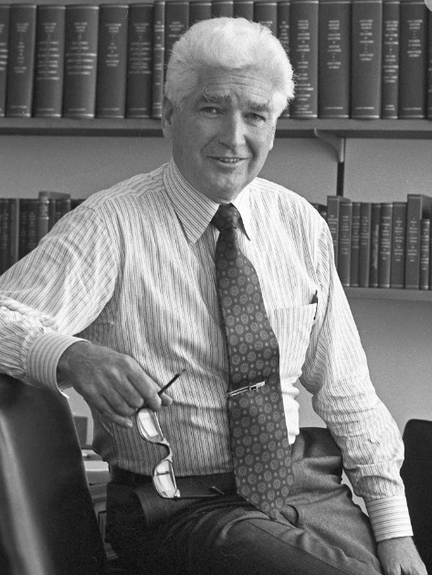
The conversation lasted about three hours, with Sullivan coming to the defense of the Shah and pushing to have the Americans keep him in power. Byrd argued the Shah was already done for and unable to rule over a people in revolt.
On the flight back to the United States, Senator Byrd prepared his report to Carter.
“We were such a small group, of course, that we could hear what the senator was dictating in the memo to the president. So we we all knew what the senator was saying in his memo,” said Craig.
Once they arrived back to D.C, the Senator had a car waiting to take him straight to the White House, where he informed the president of his dire conclusion: the scion of Iran's 2,500-year monarchy was doomed.
“He went back and told the president: This is not going to work," Craig said.
"The Shah cannot continue.”
You can watch the full interview with Ambassador John Craig on YouTube.
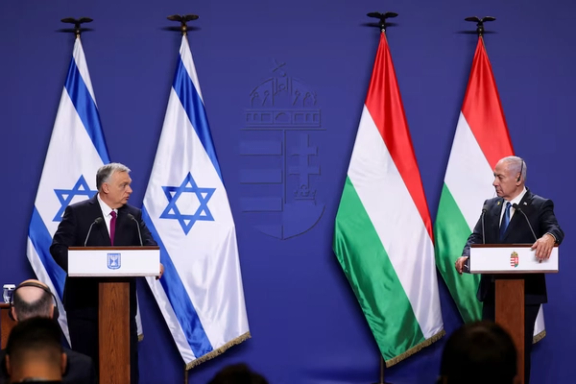
Israeli Prime Minister Benjamin Netanyahu accused Iran of leading what he called an “assault on civilization” during joint remarks with Hungarian Prime Minister Viktor Orban in Budapest on Thursday.
Netanyahu's visit followed Hungary’s formal decision to withdraw from the International Criminal Court earlier in the day. The Israeli leader is sought under an ICC arrest warrant for alleged war crimes in Gaza.
“This is important for all of civilization as we fight this battle against barbarism,” Netanyahu said. “We are fighting a similar fight for the future of our common civilization.”
He said that civilization itself is “under assault from radical Islam” spearheaded by Iran.
Iran-backed Hamas militants launched an attack on Israel on Oct. 7 2023, killing some 1,200 people and taking around 250 hostages to Gaza.
Israel's ongoing incursion into Gaza has killed more than 50,000 people, according to Palestinian health authorities, with nearly a third of the dead under 18.
Tehran and its allies were dealt significant setbacks last year, including Israeli attacks that severely weakened Iran's ally in Lebanon Hezbollah and helped dislodge the Assad dynasty in Syria, Tehran's oldest Arab ally.
On Oct. 26, Israel launched air strikes on Iran which it said knocked out Iran’s Russian-supplied air defense system.
Since Donald Trump took office in the United States for his second term as president, Tehran has issued repeated warnings against further attacks.
It has also conducted continuous military drills since early January. After reviving the "maximum pressure" campaign of sanctions from his first term, Trump on Sunday mooted bombing Iran if it does not agree to a new nuclear deal.
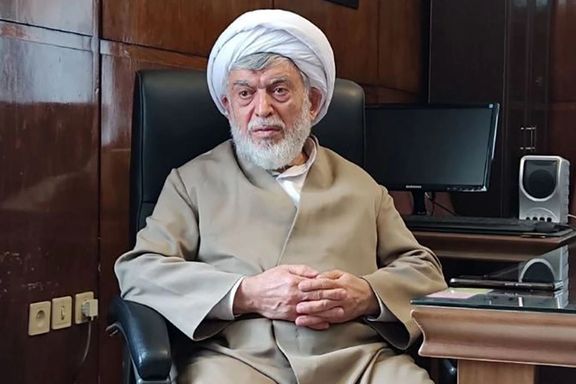
A high-ranking Iranian judge and member of the so-called Death Committee which oversaw the execution of thousands of dissidents in the late 1980s, has died.
The head or Iran's judiciary issued a condolence message on Thursday saying Hossein Ali Nayeri had been bedridden due to a lengthy illness, attributing the sickness to his years of work.
"Certainly, this ailment was due to many years of service to the holy system of the Islamic Republic of Iran and the judiciary," Gholamhossein Mohseni Ejei was quoted as saying by the judiciary's Mizan news agency.
Nayeri's death comes after a court employee in January shot dead two veteran Supreme Court judges, Mohammad Moghiseh and AliRazini, before killing himself. Initial news reports at the time mentioned a third judge being injured but officials said an injured bodyguard was the only other victim.
Born in 1956, Hossein Ali Nayeri served as the religious judge of Tehran's Evin Prison from 1983 to 1989 and was appointed by the founder of the Islamic Republic Ruhollah Khomeini.
During this period authorities routinely executed political prisoners. Nayeri was a key member of a judicial panel - later known as the "Death Committee" - which condemned thousands of prisoners to death in the summer of 1988.
Following his tenure at Evin Prison, Nayeri served as the Deputy Chief Justice of the Supreme Court from 1989 to 2013 and as the head of the Judges Disciplinary Court from 2013 to 2022.
On Wednesday, a hacktivist group said the Iranian police intelligence agency has issued thousands of gun permits to senior state officials to fend off assassination.
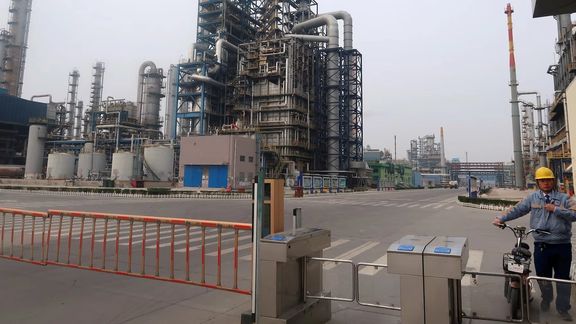
Small Chinese non-state refineries—known as “teapots”—appear to be holding off on new orders of Iranian crude following Washington’s recent sanctions on Shouguang Luqing Petrochemicals, a refinery based in Shandong.
According to market intelligence cited by maritime data firm Kpler, no fresh deals for Iranian crude have been reported since March 20.
Iran’s main oil customers are small Chinese refineries, officially not linked to state structures, most of which are based in Shandong, where 90% of Iranian oil cargoes is discharged.
Refiners are assessing the risks associated with continuing to purchase Iranian crude and are closely monitoring the repercussions faced by the sanctioned Shouguang Luqing Petrochemicals, which has a refining capacity of 60,000 barrels per day.
While there are currently no indications that banks have cut off financing for Luqing, the refinery's ability to secure financing and maintain operations could influence the decisions of other teapots, particularly those heavily reliant on Iranian crude as their primary feedstock, according to Kpler.
Despite the cautious approach to new orders, China's imports of Iranian crude are still projected to show a significant month-on-month increase in March.
As of March 26, Iranian cargoes transported by vessels not listed under US Office of Foreign Assets Control (OFAC) sanctions appeared to have discharged successfully in Chinese ports, suggesting that ports have not yet turned away Iranian crude despite the tighter US sanctions.
Iran’s oil sales to China dropped sharply in January. Data from Kpler shows that Iran’s oil deliveries to China fell below 850,000 barrels per day in the period, compared to over 1.8 million barrels per day in October last year.
However, the recent US move to sanction Huizhou Huaying, an oil terminal in southern China, may prompt some ports to re-evaluate the risks of accepting sanctioned vessels in the future.
Data indicates that two Aframax tankers blacklisted by OFAC earlier this year managed to discharge Iranian crude at the ports of Yangshan and Dongying this week.
The US sanctions on the Chinese refinery come as part of Washington's efforts to maximize economic pressure on Iran to disrupt its access to financial resources. Iran's oil sales are a key target of these sanctions.
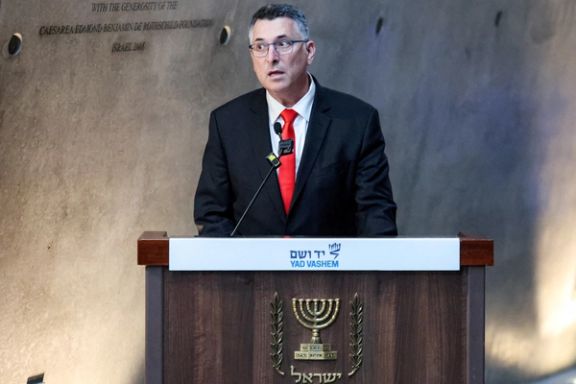
Israel's foreign minister said the country is not ruling out a diplomatic path to prevent Iran obtaining a nuclear weapon, adding that there were signs that there could be indirect talks between Tehran and the United States.
"We don't hold discussions with the Iranians, as you know, but they made it clear they are ready to an indirect negotiations with the US, and I will not be surprised if such negotiations will start," Israeli Foreign Minister Gideon Saar said on Thursday following a meeting with his French counterpart in Paris.
“What's important is the objective, and the objective is not to have Iran with nuclear weapon. I think it's international consensus, and we don't exclude the diplomatic path,” he added.
Iran denies seeking nuclear weapons, though hardliners are calling for the country's Supreme Leader Ali Khamenei to drop the religious ban on nuclear weapons, an argument that has gained pace in the wake of threats from US President Donald Trump.
Trump recently threatened to bomb Iran if a deal is not reached within a two month deadline, prompting a sharp response from Khamenei, who warned of a "heavy blow in return" if Iran were attacked. The exact start date of Trump's deadline to Iran remains unclear.
According to two US officials cited by Axios, the White House is seriously considering the Iranian proposal for indirect nuclear talks, even as the US military significantly increases its presence in the Middle East.
"Iran is a dangerous state with an extremist regime that works intensively against regional stability, exporting the Islamist revolution and spreading terrorism in the region," Saar said after the meeting with Jean-Noël Barrot.
Since October 7 when Iran-backed Hamas invaded Israel, killing 12,000 mostly civilians and taking more than 250 others hostage, Iran's allies have launched attacks on Israel from Syria, Iraq, Lebanon and Yemen.
"The most extremist regime in the world shouldn't possess the most dangerous weapon in the world," he added.
Along with the US, France was pivotal in securing the ceasefire between Israel and Iran's largest proxy, Hezbollah in Lebanon. Following the Lebanese militia's assault on Israel in allegiance with Hamas in Gaza, the archenemies came the closest to war since 2006 before the ceasefire which came into effect in November.
"We shouldn't allow Hezbollah to recover and rearm, and we will not let it happen," said Saar, as the fragile ceasefire continues amid allegations from both sides of breaches.
"Inside Lebanon, there is cooperation between Iran, Hezbollah, and Hamas, and we will not allow terror activities from there against Israel and our civilians. We will not allow to come back to the reality of October 6th on any of Israel's borders."
On Tuesday, the Israeli military said it assassinated a Revolutionary Guards member coordinating Hamas and Hezbollah operations in Lebanon.
Hassan Ali Mahmoud Badir, a member of Hezbollah's Unit 3900 and the Revolutionary Guards Quds Force, was killed in the Dahiyeh area of Beirut, a stronghold of the Iran-backed Hezbollah militia.
"Badir recently operated in cooperation with the Hamas terrorist organization, directed Hamas terrorists, and assisted them in planning and advancing a significant and imminent terror attack against Israeli civilians," a statement released on Tuesday said.
"Given the immediacy of the threat, Badir was struck immediately in order to eliminate the threat posed by a terror attack intended to harm Israeli civilians."